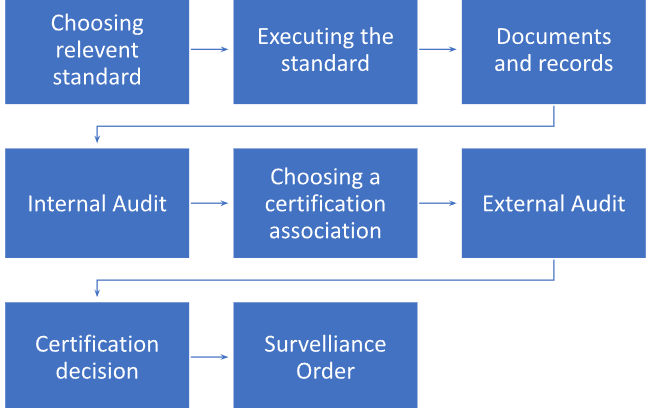
Double taxation is the term used for taxing the same income twice, which raises the total amount owed in taxes. Depending on whether this taxing process is carried out legally or economically, different people or businesses will be affected. The primary aim of Double taxation relief mechanism is to facilitate and enhance economic trade and investment between two nations by mitigating the issue of double taxes. In this article, we will get to know about double taxation and its relief mechanism.
Table of Contents
Meaning of Double Taxation
The term “double taxation” refers to the situation in which an individual’s income is subject to taxation twice. Double taxation can occur through either an economic or a legal mechanism. Economic double taxation refers to the situation wherein individuals residing inside the same country are subjected to multiple taxation on a single income. In contrast, the legal double taxation means an individual generates income from outside India and is subjected to taxation in both their nation of residence and the foreign country.
Types of Double Taxation
Double taxation can be a bit of a financial headache, and it happens in a few ways. Here’s what you need to know:
- Jurisdictional Double Taxation: This occurs when two countries both say, “Hey, we want to tax the same money!” Jurisdictional double taxation example is, let’s say you make money in one country, but another country where you live also wants a piece of that money.
- Economic Double Taxation: Now, this one’s tricky. Imagine you have a business, and it earns some money. The business pays taxes on that money. But guess what? If you share that money with the folks who own the business (the shareholders), they might have to pay taxes on it again when they get their share. It’s like getting taxed twice on the same money! This means 2 people or entity need to pay tax on same income.
Meaning of DTAA
In numerous instances, individuals who stay in a foreign nation while maintaining a source of income in India may encounter the imposition of taxes by both their country of residence and the Indian government. To save double taxation India has introduced the policy of Double Tax Avoidance Agreement (DTAA).
A tax treaty is a bilateral agreement entered into between India and another country with the aim of mitigating the issue of double taxation. By utilizing this treaty, an individual has the ability to escape dual taxation. Double Taxation Avoidance Agreements (DTAAs) can be classified into two main categories: comprehensive agreements, which encompass all forms of income, and specific agreements, which exclusively address particular sources of income.
People frequently mistakenly believe that the Double Taxation Avoidance Agreement (DTAA) permits total tax evasion. But it’s important to make clear that this kind of thinking is incorrect. Rather of getting a full deduction, NRIs might lower their tax liability by utilizing the Double Taxation Avoidance Agreement (DTAA). This enables NRIs to mitigate the impact of taxes when they generate income within the borders of India. So as we know now about double taxation so let’s learn how to avoid double taxation from below headers.
How does the Income Tax Act offer Relief from Double Taxation?
There exist numerous instances wherein individuals, residing in India, have fulfilled their obligation of paying income tax to a foreign country on their earnings derived from overseas sources, while simultaneously being mandated to fulfil their tax liability in India on the same income. In instances such as these, individuals are eligible for double taxation relief. The Income Tax Act 1961 has two distinct provisions, namely Section 90 and Section 91, which serve the purpose of mitigating the issue of double taxation.
Below is an explanation of relief from double taxation under Sections 90 and 91 of the Income Tax Act in India in simple language:
- Bilateral Relief (Section 90): This type of relief happens when India makes agreements (DTAA) with other countries. The aim is to make sure that people and businesses don’t pay taxes on the same income in both countries. If you’re from a country that has an agreement with India, you can use this to avoid double taxation.
- Unilateral Relief (Section 91): This kind of relief is for situations where India doesn’t have an agreement with a specific country. Under Section 91, you calculate the tax you’d pay in both India and the other country and then pay the lower amount. This helps avoid paying too much tax.
Types of Bilateral Relief
There are two types of Bilateral Relief
- Exemption Method: As per this agreement you don’t need to pay taxes in your home country if you’ve already paid taxes in the other country where you earned the money.
- Tax Credit Method: Many agreements use the tax credit method. This means you pay taxes in your home country but get credit for the taxes you paid in the other country. It prevents double taxation.

Conditions to be satisfied to claim Unilateral Relief
The conditions are:
- In order to meet the eligibility criteria, it is required that the individual or organization has maintained residency in India for the preceding year.
- The taxpayer should have recognized and received the income outside of India during the previous year.
- The revenue ought to have been subjected to taxation in both India and the country lacking a Double Taxation Avoidance Agreement (DTAA).
- It is imperative that the individual or organization fulfil their tax obligations in the other jurisdiction.
Incomes Eligible for Tax Rebate Under DTAA
Non-Resident Indians (NRIs) have the opportunity to utilize the Double Tax Avoidance Agreement (DTAA) in order to mitigate the burden of double taxation incurred on income derived from various sources.
- The remuneration acquired in the country of India.
- Fixed deposits, often known as term deposits, are a popular investment option in India.
- The accrual of capital gains resulting from the transfer of assets in the context of India.
- The residential real estate located in India.
- Services offered in India
- Savings bank account in India.
If the income derived from these sources is subject to taxation in the nation of your current residence, you may utilize the benefits provided by the Double Taxation Avoidance Agreement (DTAA) to avoid the obligation to pay taxes in India.
Benefits under DTAA
Here are some of the benefits available under Double Taxation Avoidance Agreements (DTAA) in brief:
- Prevention of Double Taxation: DTAA ensures that the same income is not taxed twice, both in the source country and the resident country.
- Reduced Withholding Tax Rates: DTAA often provides for reduced rates of withholding tax on various types of income, such as dividends, interest, and royalties.
- Tax Credits: Taxpayers can claim a credit for taxes paid in the source country against their tax liability in their resident country, preventing double taxation.
- Exemption for Certain Income: Some DTAA agreements exempt specific types of income from taxation in one of the contracting countries.
- Residency Rules: DTAA often defines rules to determine an individual’s tax residency, which can impact the tax treatment of their income.
- Capital Gains Treatment: DTAA may specify how capital gains are taxed, including the taxation of gains from the sale of property or investments.
- Tax Relief for Pensions: DTAA may provide relief for pension income, ensuring that retirees aren’t overly taxed on their retirement benefits.
- Tiebreaker rules: DTAA typically includes tie-breaker rules to determine the tax residency of individuals who could be considered residents of both contracting countries.
- Avoidance of Double Taxation on Dividends: DTAA may provide for reduced rates of taxation on dividends, ensuring that shareholders are not overly taxed.
- Avoidance of Double Taxation on Interest and Royalties: DTAA often reduces the tax burden on interest income and royalties, facilitating international business and investments.
- Simplified Compliance: DTAA can simplify the tax compliance process for individuals and businesses engaged in cross-border transactions.
These benefits aim to promote international trade, investment, and economic cooperation by creating a fair and predictable tax environment for taxpayers operating in multiple countries. However, the specific benefits can vary depending on the terms of the DTAA between two countries.
Takeaway
The issue of double taxation can impose considerable financial hardships on those who have income from multiple countries, particularly those with international sources of income. Still, potential answers might be found in relief methods such as Unilateral and Bilateral Tax Relief. Gaining a comprehensive understanding of these ideas and proficiently employing relief methods is crucial for optimizing tax liabilities and maintaining adherence to worldwide taxation standards.


